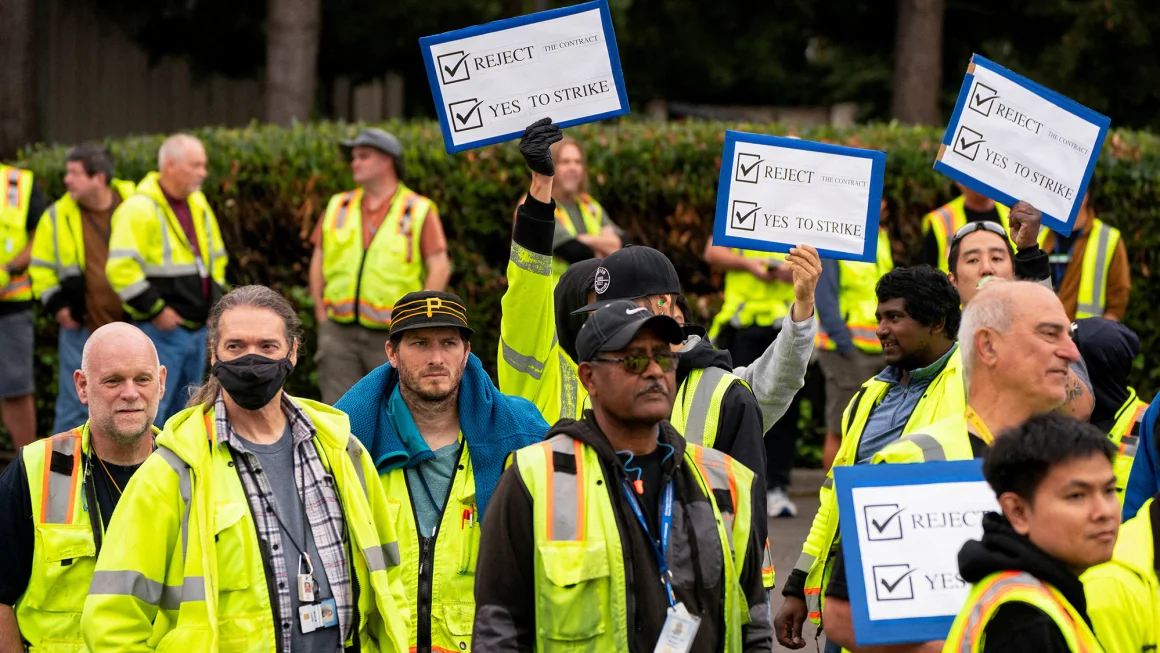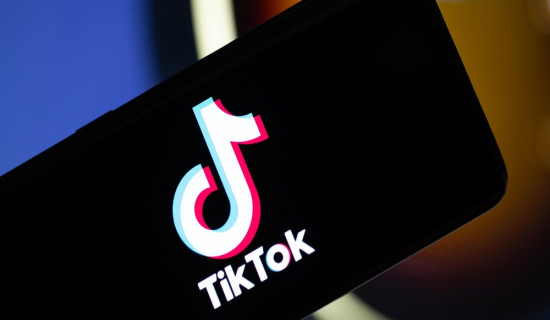- Thursday, 29 January 2026
33,000 Boeing union members set to strike early Friday
By Chris Isidore and Vanessa Yurkevich, New York, Sep 13: Union members at Boeing overwhelmingly rejected a proposed four-year contract with the troubled aircraft manufacturer, authorizing the first strike at the company in 16 years, said the International Association of Machinists (IAM) union. About 33,000 workers are prepared to walk off the job, and the strike is set to begin early Friday morning.
The rejected deal, which union leadership had described as the best it had ever negotiated with Boeing (BA), would have given raises of at least 25% over the life of the deal. It also increased job security for union members, because Boeing promised to build its next commercial jet, which has yet to be announced, at a unionized plant. Without a contract that includes that provision, Boeing might decide to build the jet at a nonunion factory.
However, 95% of members of the IAM union voted against the deal. In a separate vote, 96% voted to authorize a strike, easily clearing the two-thirds threshold needed to approve a walkout.
The strike is scheduled to start at 11:59 pm PT Thursday, or 2:59 am ET Friday. While it is possible a new deal could be reached in the remaining hours, it appears unlikely that the strike can be avoided, given the anger by rank-and-file union members at the company.
“This is about fighting for our future,” said Jon Holden, president of the largest IAM local at Boeing, in announcing the vote results. “We will be back at the table whenever we can get there to drive forward on the issues our members say are important.”
Boeing did not immediately respond to a request for comment on the announcement.
Past concessions and a series of problems at Boeing, including layoffs and the shift of some work from a unionized assembly plant to the company’s one non-union factory, had sparked widespread anger at the company. So the vote against the contract was expected, despite what was included in the offer.
Earlier this week, Kelly Ortberg, Boeing’s new CEO, had acknowledged that members had been upset over past contract terms, but he urged union members to move past that and vote for the deal.
“I know the reaction to our tentative agreement with the IAM has been passionate,” he wrote to employees. “I understand and respect that passion, but I ask you not to sacrifice the opportunity to secure our future together, because of the frustrations of the past.”
A slew of incidents
The strike, should it happen, would be just the latest body blow for Boeing. In the last five years, Boeing has suffered a myriad of problems, some tragic and many embarrassing. Most of them have proven financially devasting.
Two fatal crashes of its 737 Max, one in October 2018 and the other in March 2019, killed 346 people and led to a 20-month grounding of Boeing’s best-selling plane and a halt in deliveries to fix a design flaw tied to the crashes.
Boeing then faced a series of other questions about the quality and safety of its planes. That scrutiny grew after a door plug blew off a 737 Max operated by Alaska Airlines shortly after takeoff on January 5. Although no one was killed or seriously injured, the incident sparked numerous federal investigations, one of which revealed the plane had left a Boeing factory without the four bolts needed to hold the door plug in place.
Since then, Boeing has agreed to plead guilty to federal criminal charges of deceiving the Federal Aviation Administration during the initial investigation of the Max. As part of its agreement with the US Justice Department, the company will have to operate under the supervision of a court-appointed monitor.
A strike would not affect consumer travel. Boeing planes that have already been delivered to airlines and those currently in use around the world will continue to fly. But, the strike would cause a delay in deliveries of jets promised to airlines, cutting off Boeing’s primary source of cash.
Near ‘junk’ status
Depending on the length of the strike, it could also cause problems for nearly 10,000 Boeing suppliers, which can be found in all 50 US states. The company estimates its own annual contribution to America’s economy to be $79 billion, which supports 1.6 million jobs directly and indirectly. Boeing has nearly 150,000 US employees, including the 33,000 IAM union members.
The company has not reported an annual profit since 2018, running up cumulative core operating losses of more than $33 billion through the second quarter of this year, and its credit rating has been downgraded to near “junk” status. Even before the strike, the company had not been expected to return to profitability in the immediate future due to limits on its production output.
Shares in Boeing have lost more than 60% of their value in the last five years, and more than 30% since the Alaska Air incident at the start of the year.
In announcing the tentative agreement Sunday, Holden called it “the best contract we’ve negotiated in our history.” But the overwhelming backlash against the deal soon made him change his comments in recent days.
Holden told members in a message Tuesday that the union leadership recommended workers approve the deal because it was the best that it could negotiate without a strike.
“We recommended acceptance because we can’t guarantee we can achieve more in a strike,” he said in that message. “But that is your decision to make and is a decision that we will protect and support, no matter what. We have secured all that we could in bargaining short of a strike. The membership must take it from here.”
















